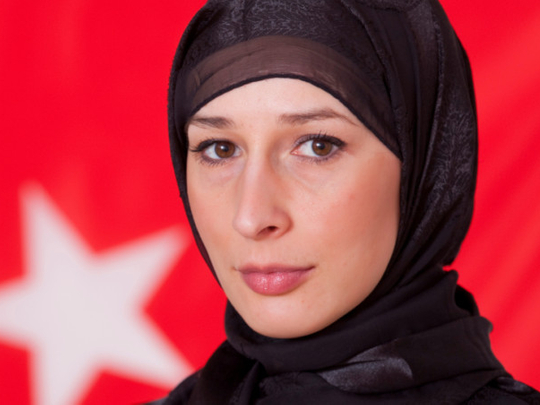
Do Coco Chanel and Islam go together? Turkey’s Âlâ, a high-fashion magazine and the first to feature models in headscarves, certainly seems to think so. After its first issue hit the newsstands in June 2011, circulation quadrupled to 40,000 in only four months.
It comes down to simple economics. Over the past decade, Turkey has enjoyed an economic boom that has benefited, as before, the secular urban elites, but also conservative supporters of the AKP governing party and former rural entrepreneurs who have enjoyed unprecedented upward mobility, leading to the formation of an Islamic, urban middle class.
This new Islamic bourgeoisie has money to spend and the opportunities to do so are increasingly diverse: luxury gated communities, boutiques, restaurants, hotels and sports clubs catering to a more pious lifestyle are springing up in urban centres.
“The AKP successfully integrated a large, formerly disregarded part of society into the consumer market,” said the anthropologist and journalist Ayse avdar. “In that sense, market dynamics succeeded where politics have failed: it normalised [a religiously conservative lifestyle]. A magazine such as Âlâ is a product and a sign of this normalisation.”
Âlâ’s fashion editor, Bsra Erdogan, thinks that the magazine filled an important void. “It was a veritable explosion — obviously scores of conservative women had been waiting for a publication like this for a long time. Many readers told us, ‘Why did it take so long?’”
While Âlâ adheres to Islamic clothing rules — headscarves and the length of hemlines and sleeves — it does not cater exclusively to women who cover their heads, and Islamic clothing companies feature next to designer brands such as Gucci, Louboutin and Stella McCartney.
Ebru Bykdag, Âlâ’s editor-in-chief, said the magazine was initially criticised as being Islamist by secularists, and for commercialising Islam by some pious Muslims. “But we are not handing out fatwas, and we don’t break any Islamic rules,” she said. “Why should conservative women not be allowed to wear nice clothes?”
With wealth and visibility comes a new self-confidence among conservative women. “People used to look down on women wearing the headscarf,” said 35-year-old Esra Can, owner of a beauty salon in Istanbul’s conservative Fatih neighbourhood. She opened her own business after her decision to wear the headscarf put an end to her career as a sales director in the textile industry. “I was put before the choice between my headscarf and my job,” she said.
Adile Trkmen, a beautician who had to drop out of university because of her headscarf, said she breathed a sigh of relief at the appearance of Âlâ. “It brought a sense of normality,” she said, arguing that Âlâ was a sign things had changed. “When I used to go to the opera, people stared at me like I didn’t belong. Now I go everywhere, to restaurants and rock concerts.” She laughed. “Headbanging with a headscarf? No problem!”
Esra Can agreed: “With the AKP government and through economic growth people started to look past this piece of fabric. Now people judge me by what I achieve which is a whole lot.” Her beauty salon, nestled between brand name shops, wedding gown boutiques and fancy patisseries, draws clients with and without headscarves — from the neighbourhood and from all over Istanbul.
Âlâ’s editor-in-chief Ebru Bykdag underlined the importance of featuring articles on professional conservative women who have succeeded — women such as Esra Can. “We want to present positive examples and role models to young women.”
She admitted that female employment in Turkey was still dismally low only 28 per cent of women at present participate in the workforce, less than half the European Union average. “We rally for female quotas at the workplace and for an end to the preconception that women wearing headscarves can only work in low-skilled and low-paid jobs, if at all,” she said. “Many companies still refuse to employ highly qualified women for executive positions only because they cover their heads.”
Bykdag said that magazines such as Âlâ also helped to bridge the gap between practising Muslims on one hand and secularists who are anxious about an Islamisation of Turkey on the other. “It shows that we like the same things: we like to look good, we like style, we like to eat good food. It’s a place to start.”
— Guardian News and Media Limited


